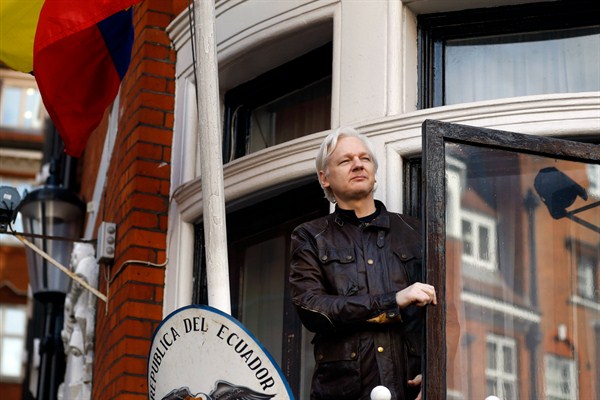Rumors of WikiLeaks founder Julian Assange getting booted from his refuge at Ecuador’s Embassy in London have been floating around for months. But late last week, Ecuador’s president, Lenin Moreno, confirmed the impending ouster, saying he is negotiating with British authorities to get Ecuador’s highly complicated guest out of the embassy and ensure Assange’s safety once he is evicted.
The announcement raises the question: Why now? The answer shines a light on the astonishing political transformation that has occurred in Ecuador in recent years—and how WikiLeaks, which is a key factor in the special counsel investigation in the U.S. into whether Donald Trump’s presidential campaign colluded with Russia, has served to put Ecuador’s gripping political drama on the global stage. It is an unlikely story that shows the surprising intersection of several seemingly unrelated developments, combining international intrigue, hacking and spycraft with local politics in a small South American country.
Assange took asylum in the Ecuadorean Embassy in London back in 2012, to avoid arrest on Swedish allegations of rape. Since then, Swedish prosecutors have dropped their investigation, but Assange still faces a British arrest warrant for violating the conditions of his bail by sheltering in the embassy. Assange has said he fears for his life after WikiLeaks published stolen U.S. diplomatic cables. Wikileaks was also a player in Russia’s plot to help Trump win the 2016 U.S. election, disseminating stolen emails from the Democratic Party and Hillary Clinton’s campaign chairman. With the Trump-Russia probe escalating in the U.S., Assange has more reasons for concern.

